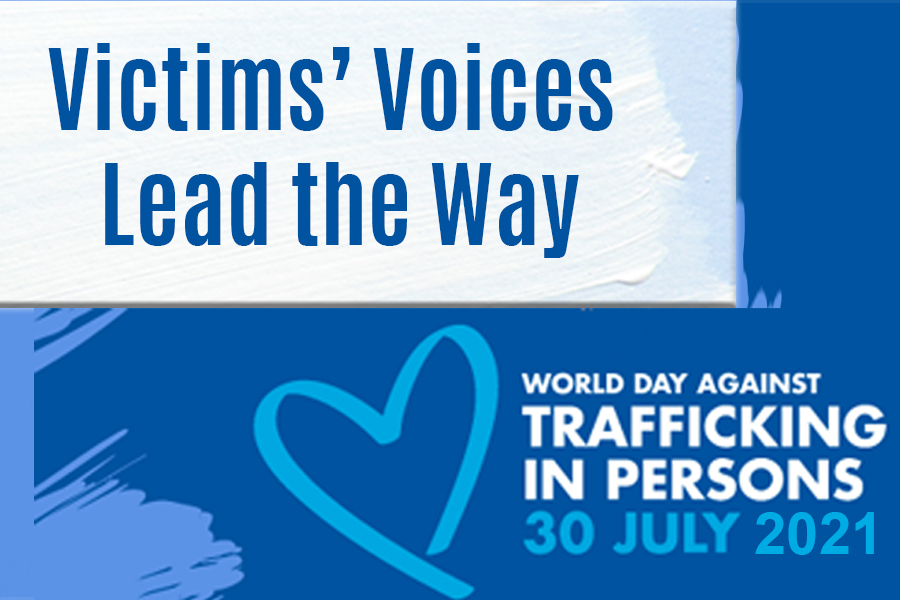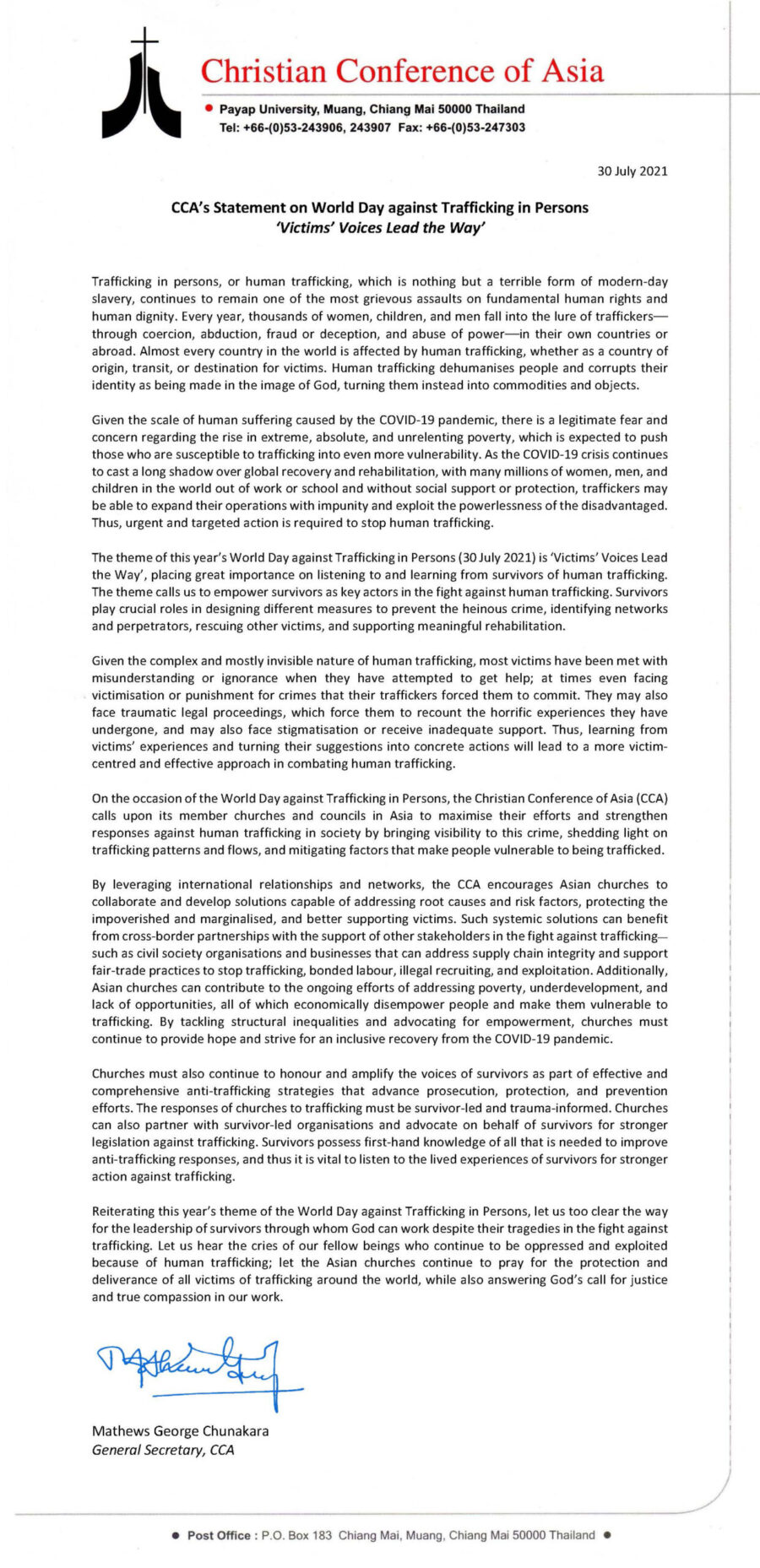“Asian churches’ responses to human trafficking must be survivor-led and trauma-informed,” says CCA General Secretary on World Day against Trafficking in Persons
 “The responses of churches to trafficking must be survivor-led and trauma-informed. Churches must also continue to honour and amplify the voices of survivors as part of effective and comprehensive anti-trafficking strategies that advance prosecution, protection, and prevention efforts,” said the Christian Conference of Asia’s General Secretary Dr Mathews George Chunakara, in a message released on World Day against Trafficking in Persons.
“The responses of churches to trafficking must be survivor-led and trauma-informed. Churches must also continue to honour and amplify the voices of survivors as part of effective and comprehensive anti-trafficking strategies that advance prosecution, protection, and prevention efforts,” said the Christian Conference of Asia’s General Secretary Dr Mathews George Chunakara, in a message released on World Day against Trafficking in Persons.
The World Day against Trafficking in Persons falls on 30 July each year. This year’s theme is ‘Victims’ Voices Lead the Way’, placing special emphasis on learning from the lived experiences and perspectives of survivors of human trafficking. Survivors play crucial roles in designing different measures to prevent the heinous crime, identifying networks and perpetrators, rescuing other victims, and supporting meaningful rehabilitation.
Trafficking in persons, or human trafficking, is one of the gravest violations of the fundamental rights and dignity of people, which corrupts their identity as being made in the image of God and instead considers them as commodities or objects, reads the CCA General Secretary’s statement.
Human trafficking, an invisible and complex crime, usually occurs due to economic disempowerment and other similar crises. There are legitimate concerns that the COVID-19 pandemic, which continues to cast a long shadow over global recovery and rehabilitation, may enable traffickers to expand their operations with impunity and exploit the powerlessness of the disadvantaged.
The number of trafficking victims has risen sharply in the last decade with the crime being most prevalent in Asia, where a majority of victims are trafficked for sexual and labour exploitation.
“Let us clear the way for the leadership of survivors through whom God can work despite their tragedies in the fight against trafficking. Let us hear the cries of our fellow beings who continue to be oppressed and exploited because of human trafficking; let the Asian churches continue to pray for the protection and deliverance of all victims of trafficking around the world, while also answering God’s call for justice and true compassion in our work,” concludes the statement.











